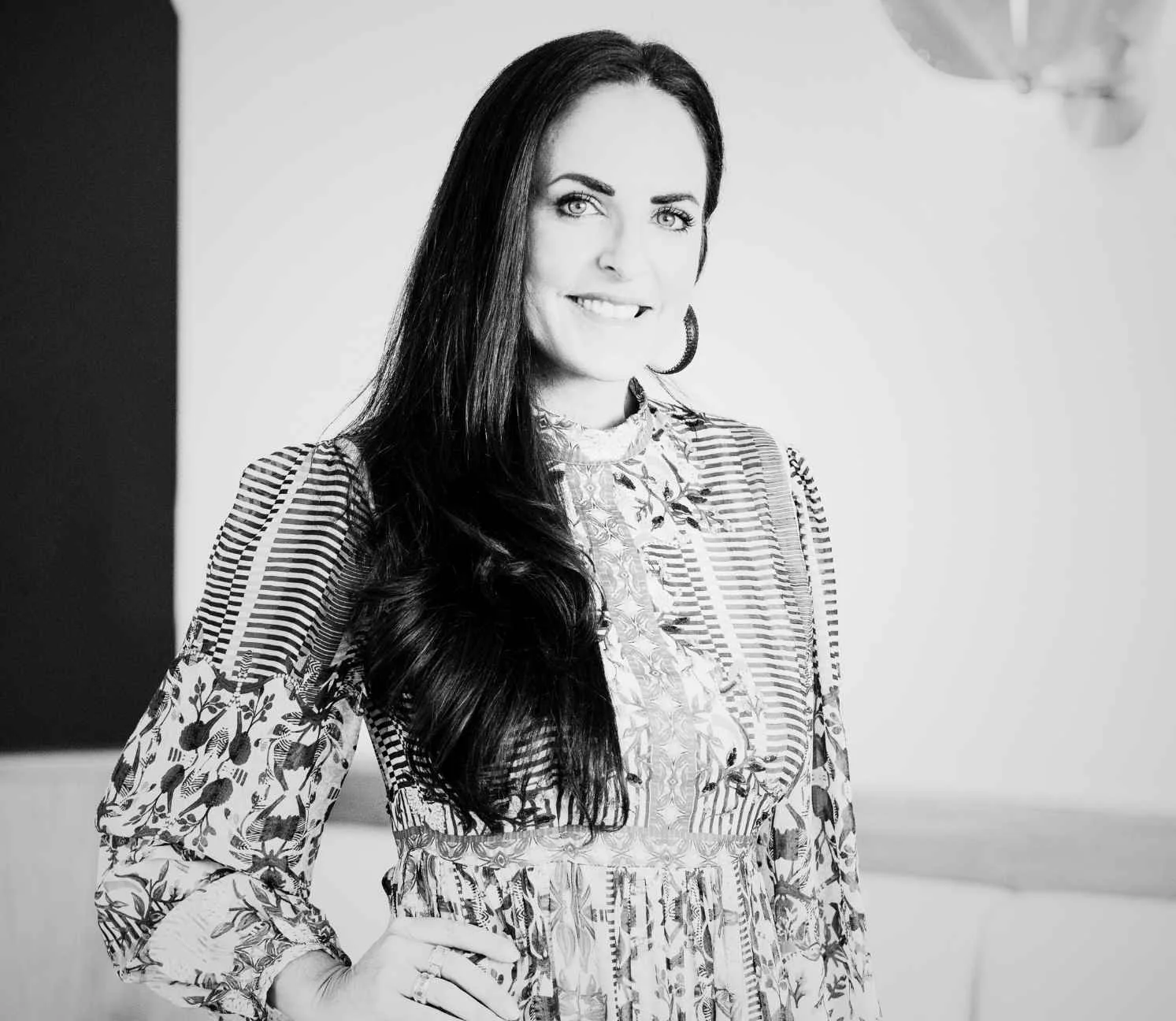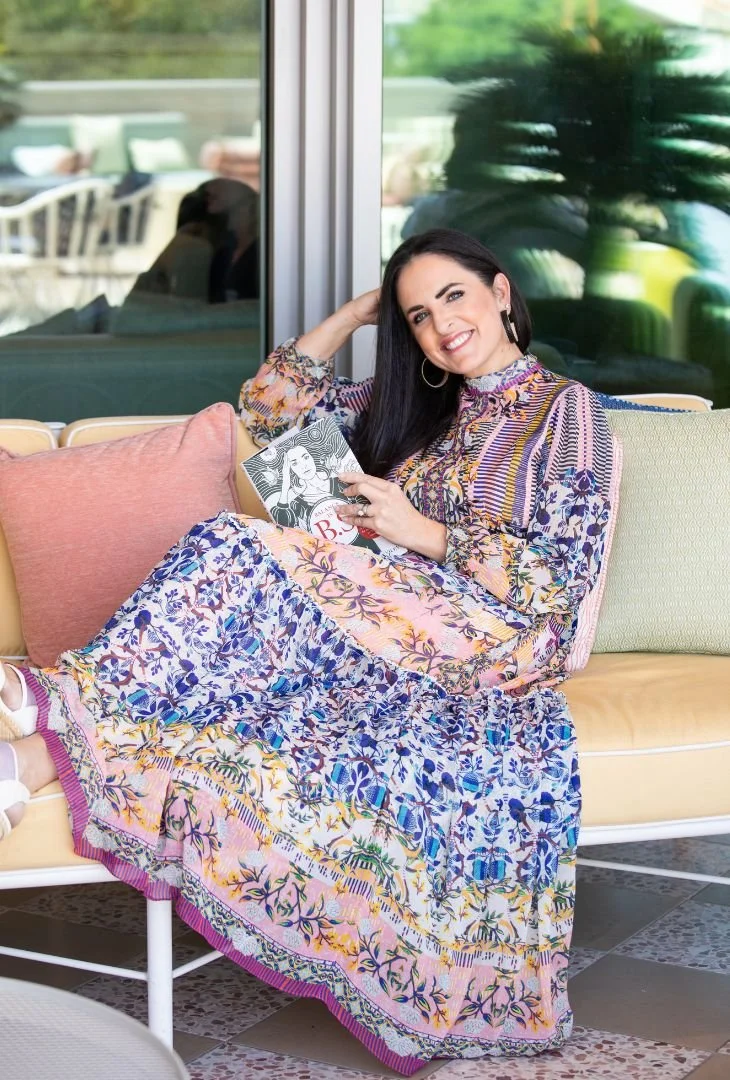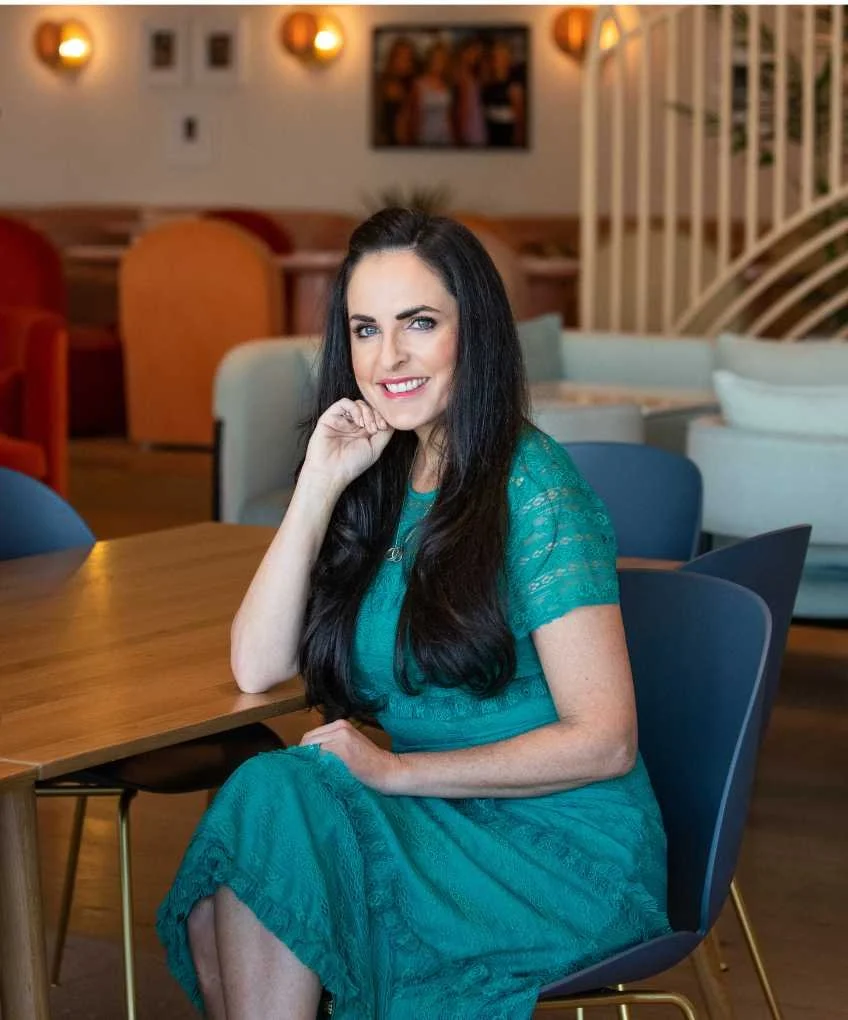Tamara Loehr On Embedding Impact Into High Performing Business Ventures
Tamara Loehr is a globally recognised impact investor, online strategist and growth advisor to $50M+ privately owned companies.
With $5B funds under mentoring, Tamara helps fellow entrepreneurs and CEOs scale and exit their companies through effective growth strategies, net-positive business models, scalable and lead sales processes, and digital transformation.
Along with a string of awards expanding across her 25+ year entrepreneurial journey, Tamara was recently named by Forbes in the Top 11 Most Impactful Female Leaders, and made the Top 300 Real Leaders 2023 list.
Tamara joins us to openly shares her proven strategies so businesses can take instant action towards driving their growth.
Tamara discusses growing a purpose led business without compromising your health, self or family and what led her to being an internationally acclaimed business woman.
Highlights from the interview (listen to the podcast for full details)
[Sarah Ripper] - To start off, could you please share a little bit about your background and what led you to your work today?
[Tamara Loehr] - There's no such thing as overnight success. It has taken 25 years of being a female entrepreneur which has led to this point. For me there have always been my core values, and part of those were starting a business and looking for ways to do the right thing. In fact, that's how I got into business. I'm a creative by heart, so I'm an illustrator, songwriter, and very much a creative thinker. I graduated university and got into an agency. I was told I needed to market businesses I didn't believe in, and that fundamentally didn't sit well with me and my values. I started my first business by going out on my own, so I could choose my own clients and use my zones of genius (creativity and marketing) to help businesses I believed in. That's how I got started at 19 with a digital marketing agency, and then I started investing in businesses 15 years ago. I was taking equity, and then I ended up raising some capital and doing it using capital as well. But every step of the way, it was important for me to make sure it was ethical. To me, my company’s name Beusail, is an ancient Gaelic word, and it means “ethical moral of good intent whilst honouring the earth mother and its people”. I won't invest or help a business unless it can have a net positive business model, which is very important.
Speaking on your philosophy of 'blended without compromise', how did this come about and what does it look like in practice?
Everyone used to say to me if you want to start a family and be the breadwinner through big businesses (and most of my business is offshore, with 90% being in America), I would have to compromise on something. I would ask, "why do I have to do that?"
I was looking for a better model, because when I look at women in business, they take so much longer to grow, because they don't get access to the networks I have, most women in general can’t get capital, and then the other thing is they want to focus on their family.
Because of this, their entrepreneurial journey or career takes a backseat. I wanted to figure out a way I could have all of that, and the solution was we need to blend more things. We need to give ourselves permission to blend. I'll give you a recent example. I got asked to come to Miami last week to mentor a fellow from YPO who makes over $900 million in revenue annually. It was a huge opportunity for me to get into that business and make a positive impact, but it fell on the school holidays, which is my sacred time with the kids, because they're not at school and I usually do a lot of things with them. I was feeling torn, so when I’m feeling torn, my rule is look for a way to blend. I said to the client, "I'm going to bring the kids with me, and I'm going to do Disney World, which is on my bucket list.” I went to Disney World VIP style, which is also good if you've got enough money and entrepreneurship can give this to you. I blended the two by working during the day, spending the afternoon with the kids and experiencing Miami. We hired boats and did fun things; we went to Disney World and created memories at the same time. I didn't ask for permission, I did not say sorry, I said "if you're okay with that, then I can accept this contract." You've got to look for ways to blend and not ask, not apologize, but lead by example and say, "I can equally be a great mom and be great in business." I think when you get to over 40 years of age and you've got 25 years of experience, I can demand that. I believe women should also be asking the same, whether they're in a job or whether they run their own business. The reason we got into this career path was for the flexibility.
As a female leader and entrepreneur in the purpose led business space, what challenges and opportunities are you seeing right now?
For me, there aren’t challenges. It's about how you show up as a leader, and anything I grant myself or my business partners I also grant to my team. My team has the same flexibility. I choose talent, not territory. I don't care where people live in the world, but in general, I will extend them the same things. We call it ‘work life blend’, and the same goes for every one of my team. It's family first; there's an old saying which says you are not a success in business if you fail at home, so the same applies to everyone. That's my first rule, and it is about how do I apply the same to everyone else that works for me, so they can also have this blended lifestyle? The second thing is we offshore, I'm a master of offshoring and I love building offshore teams because it gives us the flexibility to be able to grow businesses at scale and without access to the capital which in most cases (for women especially) gives us the ability to build teams on a good budget. When I hired people in The Philippines, we didn't want to do it like everybody else does, we gave medical leave to women and their children, and then we let them work from home as well. They don't have to commute an hour each way into the office to sit there and be babysat. We trust them, and everything comes down to trust and this work life blend. If you can get those two right, then you will end up with a team underneath you that will go to extra lengths for your business. The work will get done; it just doesn't have to be done between nine and five o'clock. If they want to get the kids off to school and start a little later, that's fine. Some people want to start or finish earlier. It's all about the communication, trust and making sure you give them a work environment where they feel they don't have to separate the two and they can have the best of both worlds.
What inspiring projects, initiatives or concepts have you come across which are creating positive change in our world?
I'm mentoring quite a lot of brands worth over $4 billion worth of combined revenue currently. Even though I'm helping them with their sales and marketing, my one condition is they strive to be a net positive business; that's a business which gives more than it takes, and that includes making an impact. This makes a lot of business sense, but for most people I meet in business, they want to do the right thing by the community, their employees, their stakeholders and by the planet. It's just a question of how do we do that and still maintain profitability? I'll give you a couple of examples of the work that I've done recently. One is an amazing suit company; they do men's suits in New York. They've got 70 stores throughout the area from New York to Philadelphia, and the owner is very philanthropic. He does a lot at a local level, and I said, "let's embed this into your business." Now for every hundred suits he sells, he is donating one to a kid who can't afford to go to the prom or a returning veteran who needs to do a job interview. That's an easy thing for him to do inside his business, and it also means when we're looking at the business model and I'm asking the customer to please leave a review (because we all know that reviews drive more sales), then we can directly relate that to our impact metrics. We can say, "look we're really about impact, if you leave a review, that's an extra 10 points towards us getting a suit for someone in need.”
A lot of people think about impact as a destination, what we've got to look at it as is a journey. What are the steps we can take every day towards making a more positive impact?
Yes, he now needs to look at how does he make his suits more sustainable, through the fabrics and all of that, but that's a longer journey. However, there are things you can do straight away, like embedding giving into every product you sell. That's a decision most business owners can make quickly. It goes a long way, because I believe business will fix the world, not governments. We are problem solvers by nature. If we have businesses that are profitable, then we need to stand for profit and purpose, and collectively we can achieve a lot. If you think about someone like another lady I mentor at Jelly Pop, she creates 6 million pairs of shoes. For every 100, if she donated some, what would that make for the world? My other mentee is selling lots of suits, what would that look like as a business that's worth over $50 million? If I can encourage all of them to make these small shifts and work towards being a business that gives more than it takes, then I think we can make a massive impact together. This is rather than relying on one Elon Musk or the one in a billion people that creates an impact.
What advice, suggestions and key learnings would you share to businesses or projects looking to embed profit and purpose into their growth strategy, approach, and vision for the future?
When I start mentoring a company, the first thing I do is go back to their why statement.
We need to put purpose at the core of everything we do. Then we need to relook at how we articulate that to the market. People don't buy what you do, they buy why you do it.
Let's get back to that why? Let's find out why you started the business, what it is that you want to achieve and what could be a wonderful legacy for this company? We start there and then build the existing product offering. We reshape that around a purpose driven company. Now, I also want to point out businesses that are purpose driven and B-Corp certified are growing at 37 times the national average. It makes business sense to stand for this. You're not going to attract the next generation of workers if you don't stand for purpose, they just won't work for you. You're going to have staff shortages and you see customers every day demanding more and more transparency around sustainability and ESG. I help them work on what that looks like and empower leaders to make that change. It’s important to start and then look at your business as a collective impact which you keep improving on year by year. This is important, along with profit being the sacred, because profit will drive growth. If we drive a business that is committed to purpose, we're going to make bigger impact.
To finish off, what books or resources would you recommend to our listeners?
I'm a huge fan of Paul Polman, who is the ex-CEO of Unilever. He just co-wrote a book called Net Positive. This book is about business practices to become net positive. He's talking about ‘net positive’ as he is through his work, how do you get to net positive and then go beyond that? The second book I would recommend (which is not impact focused) is Key Person of Influence by Daniel Priestly. The reason I recommend this book is because I encourage all the founders and CEOs of the companies I mentor to stand up and be part of their brand.
Faceless brands are not performing as well as ones the founder is behind. in a time where trust is at its lowest, Consumers want to hear from the founder, and they must take a social stance.
I'm encouraging founders to step up and be part of their brand messaging. They must be authentic leaders, not invisible leaders. That's another great book which helps founders’ step into that space and role as a heart centred leader, and those are the people who will lead companies into great success in the future.
Initiatives, Resources and people mentioned on the podcast
Recommended books
Net Positive: How Courageous Companies Thrive By Giving More Than They Take by Paul Polman & Andrew Winston
Key Person of Influence by Daniel Priestly







